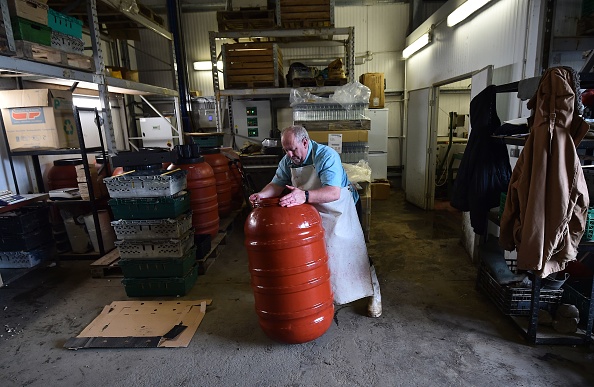UK avoids recession but annual growth slowest in almost a decade

The UK economy avoided falling into recession in the third quarter of the year, official figures have shown today, but annual growth slipped to its slowest pace in nine years.
A pick up in the giant services sector and a return to growth in construction boosted the economy, but the malaise in manufacturing continued with production stagnant in the third quarter.
Read more: Bank of England: Brexit deal and trade wars will hold back UK growth
UK GDP grew by 0.3 per cent between July and September compared to the previous quarter, the Office for National Statistics (ONS) said, marginally below economists’ expectations of a 0.4 per cent expansion.
The UK economy shrank in the second quarter, meaning a contraction in the third quarter would have plunged Britain into a technical recession. This could have caused a major problem for the Conservative government in the run up to the 12 December General Election.
Nonetheless, growth over the last year has “slowed to its lowest rate in almost a decade,” said an ONS spokesperson. Year on year, third quarter growth came in at one per cent, the slowest rate since 2010.
“GDP grew steadily in the third quarter, mainly thanks to a strong July. Services again led the way with construction also performing well,” the spokesperson said.
The services sector, which makes up over 75 per cent of the economy, grew by 0.4 per cent in the third quarter, following its weakest performance in three years in the previous quarter.
The spokesperson added: “Manufacturing failed to grow as falls in most industries were offset by car production bouncing back following April shutdowns.”
‘Nothing to celebrate’
Nancy Curtin, chief investment officer at Close Brothers Asset Management, said: “The economy is struggling, and kicking the Brexit can down the road has denied businesses the certainty they so sorely need, with investment spending collapsing as a result.”
Business investment was flat in the third quarter, but has declined over the year as firms put off decisions until more clarity emerges about Brexit.
“The Bank of England forecasts an investment rebound if a Brexit deal removes no-deal risk but we think this is optimistic,” Curtin said.
Garry Young, director of macroeconomic modelling at research institute Niesr, said: “The underlying pace of growth in the United Kingdom is slow.
“The strongest source of private sector demand is household consumption, driven by real wage growth, but this is not sustainable without a pick-up in productivity growth, and this seems unlikely in the near term.”
Institute of Directors chief economist Tej Parikh said: “A return to growth is welcome news, but narrowly avoiding a recession is nothing to celebrate.”
Read more: Conservatives and Labour battle over election spending pledges
“While high employment has provided some support for the economy, underlying weaknesses in investment and productivity still need addressing.”
He added: “With uncertainty likely to persist and a continued slowdown in global markets, the onus is on the new government to stimulate economic activity and move the UK beyond its current yo-yo pattern of growth.”
(Image credit: Getty)